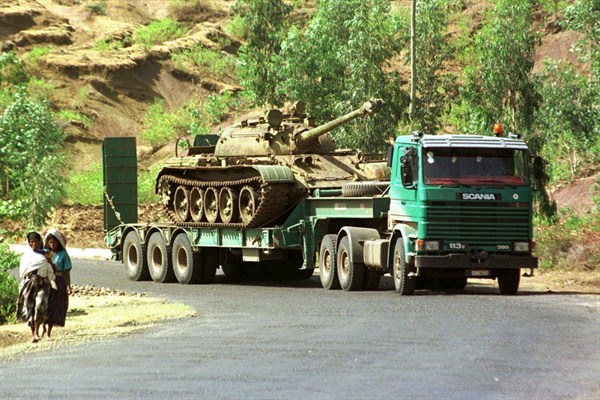On June 12, an uneasy peace between Ethiopia and Eritrea that had lasted 16 years came to a dramatic end, as border clashes claimed 200 Ethiopian lives and an unknown number of Eritrean casualties. While both countries blamed each other for escalating hostilities, the causes of current tensions differ markedly from those underpinning past wars between them, with implications for efforts by international partners seeking to mediate between the two sides.
Historically, conflicts between Ethiopia and Eritrea have been triggered by territorial disputes and national security concerns. The 30-year war that lasted from 1961 to 1991 was a struggle for Eritrean independence, sparked by Ethiopia’s revocation of the then-province’s legally granted autonomy. Their 1998-2000 war, which resulted in 80,000 casualties, was a similarly intense struggle for control of the disputed border town of Badme. More recently, border skirmishes in 2012 were triggered by Ethiopia’s allegations that Eritrea was supporting terrorist attacks by Ethiopian Afar rebel groups.
In stark contrast to previous conflicts, however, the recent hostilities between Ethiopia and Eritrea are largely rooted in internal politics on both sides. Ethiopia and Eritrea are both ruled by authoritarian regimes, beset with internal discord and economic crises. Limited border hostilities are an effective way for the leaders of both countries to rally pro-regime nationalism and strengthen their holds on power.

